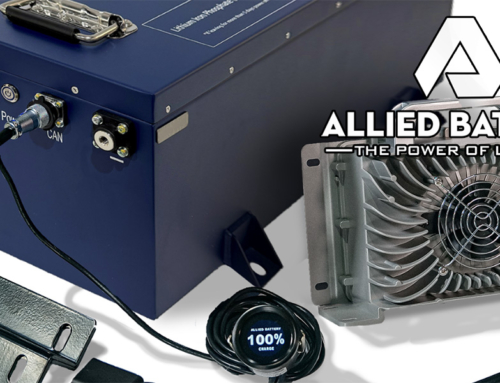Schools and Universities Using Electric Vehicles
Carts on Campus -from grade schools to large universities, educational institutions around the world are utilizing golf carts and other electric vehicles on their campuses for a large variety of uses and reasons.
School administrators are realizing efficiency advances and cost savings by using carts for things like student and faculty transportation, landscaping and maintenance work, safety and campus security, food and beverage transportation and more. Today’s advanced cart technology and the ability to customize carts for specific campus needs represent the future for forward-thinking school administrators.
Some schools allow golf cart use on campus by students, providing safety and operation requirements to ensure that carts are properly equipped and used in a safe manner.
The University of South Florida in Tampa has over 700 golf carts and other utility vehicles on their campus and has an extensive Cart Safety Training Program in place, along with a written Vehicle Operation Policy, to help run the school’s facilities in the safest and most efficient way. Carts on campuses interact closely with pedestrians, bicyclists, skateboarders, scooters, and passenger vehicles, so practicing the highest safety standards is key to reducing the risk of an accident.
Just like in most passenger vehicle collisions, the leading causes of accidents involving golf carts on school campuses are driving too fast for conditions, distracted driving and aggressive or careless operation.
 Florida Gulf Coast University, more commonly referred to as FGCU, is a large college located in Estero, Florida, midway between Naples and Fort Myers on the gulf coast. The school utilizes hundreds of golf carts and low-speed vehicles, (LSVs), for dozens of uses on its sprawling, 807-acre campus. The school’s former President, Michael V. Martin, was well-known for crisscrossing the campus in his golf cart, offering rides to students, and visiting various buildings and facilities.
Florida Gulf Coast University, more commonly referred to as FGCU, is a large college located in Estero, Florida, midway between Naples and Fort Myers on the gulf coast. The school utilizes hundreds of golf carts and low-speed vehicles, (LSVs), for dozens of uses on its sprawling, 807-acre campus. The school’s former President, Michael V. Martin, was well-known for crisscrossing the campus in his golf cart, offering rides to students, and visiting various buildings and facilities.
The school has requirements for every cart and utility vehicle they purchase, including being equipped with turn signals, tail and brake lights, head lights, horn, side mirrors and a 5-panel rear view mirror. Carts equipped with rear-facing passenger seats must have grab bars and when the law or University so dictates, carts must also be equipped with a fire extinguisher and seat belts. The school’s policy also states that whenever practical, carts currently in use on campus grounds will be upgraded and refurbished with the above items.
David Vazquez is FGCU’s President of Administrative Services and Finance, and says that their university owns and operates 132 golf carts for various uses on campus, with electric carts outnumbering gas models.
“They are used by our staff for delivering mail and general maintenance issues, plus conducting tours and providing other transportation on campus,” Mr. Vazquez says. Students are not permitted to operate carts on campus there unless conducting university business. Employees and select vendors are allowed to use them on designated roads and pathways.
While there currently is no official policy on purchasing new electric vehicles for use at FGCU, Mr. Vazquez points out that “the university has always demonstrated a forward-thinking position when it comes to things that can make our operations more environmentally sustainable.”
Specialized Carts for Every Task
Schools today have many options and resources available for procuring exactly the right style and configuration of vehicles designed for specific uses on their campuses. Cart manufacturers like Club Car, for example, make specialty carts for things like landscaping and campus maintenance services.
 Their Carryall 500 vehicles are made for things like transporting equipment and materials, personnel and supplies around a school’s campus, and their newest models feature eco-friendly, quiet electric motors that save money and improve efficiency, and are as powerful as the gas models of years past.
Their Carryall 500 vehicles are made for things like transporting equipment and materials, personnel and supplies around a school’s campus, and their newest models feature eco-friendly, quiet electric motors that save money and improve efficiency, and are as powerful as the gas models of years past.
People-movers are another big segment of the market for carts on school campuses. University campuses can often be more than 1,000 acres and are often spread out in many offsite locations from the main facility. Sports arenas and ballfields, auditoriums and performance halls and other facilities require a safe and cost-efficient way to get groups of people around the grounds, and Club Car’s Transporter and Villager lines are designed to accommodate groups of people who may need a tour of the school or easy access to one of the outlying buildings far from the parking area.
Keeping a school’s population and faculty safe is more important now than ever before, and golf carts provide the ideal way for campus police and security patrols to move about the facility effectively and with reduced costs when compared to using a passenger vehicle. Club Car, among other brands, even make specialized medical transport vehicles in the event of an on-campus emergency.
MotoEV is based in Atlantic Beach, Florida, and manufactures and markets many specialized electric vehicles for use on school campuses.
Current environmental concerns shared by the nation’s college students, combined with the worldwide emergence of EV and autonomous vehicle use, have created a critical market for this manufacturer in servicing the vehicular needs of colleges, universities and secondary schools. MotoEV makes electric school buses, campus security and emergency responder vehicles that are enclosed to prevent extreme weather issues like rain or cold, and some are equipped with rooftop solar panels for added efficiency and cost savings.
The company’s campus security vehicles can be created in a school’s color scheme and include their logo, and warning lights and sirens can be included. They also market a line of EMS vehicles equipped with ADA-approved access, wheelchair ramps, full-body stretchers and fold-down seating that conform to nearly any possible configuration.
Learning Curve – Managing the Future of Carts on School Campuses
With hundreds of carts and electric vehicles under their ownership and operation, a fleet’s management and maintenance are big jobs for department heads and school administrators.
Developing a stringent service and maintenance schedule is key to keeping the fleet running efficiently and safely, and schools need concise driver training and operational guidelines to ensure that school employees are using the carts as they were intended and to reduce any potential liability in the event of an accident involving one of their carts.
Smart universities and other large educational campuses around the country are realizing the extensive advantages to operating cleaner, more eco-friendly vehicles for their many needs. Today’s modern EV’s mean more cost and environmental efficiencies, plus an increased adaptability to the needs of their students, faculty and staff.







